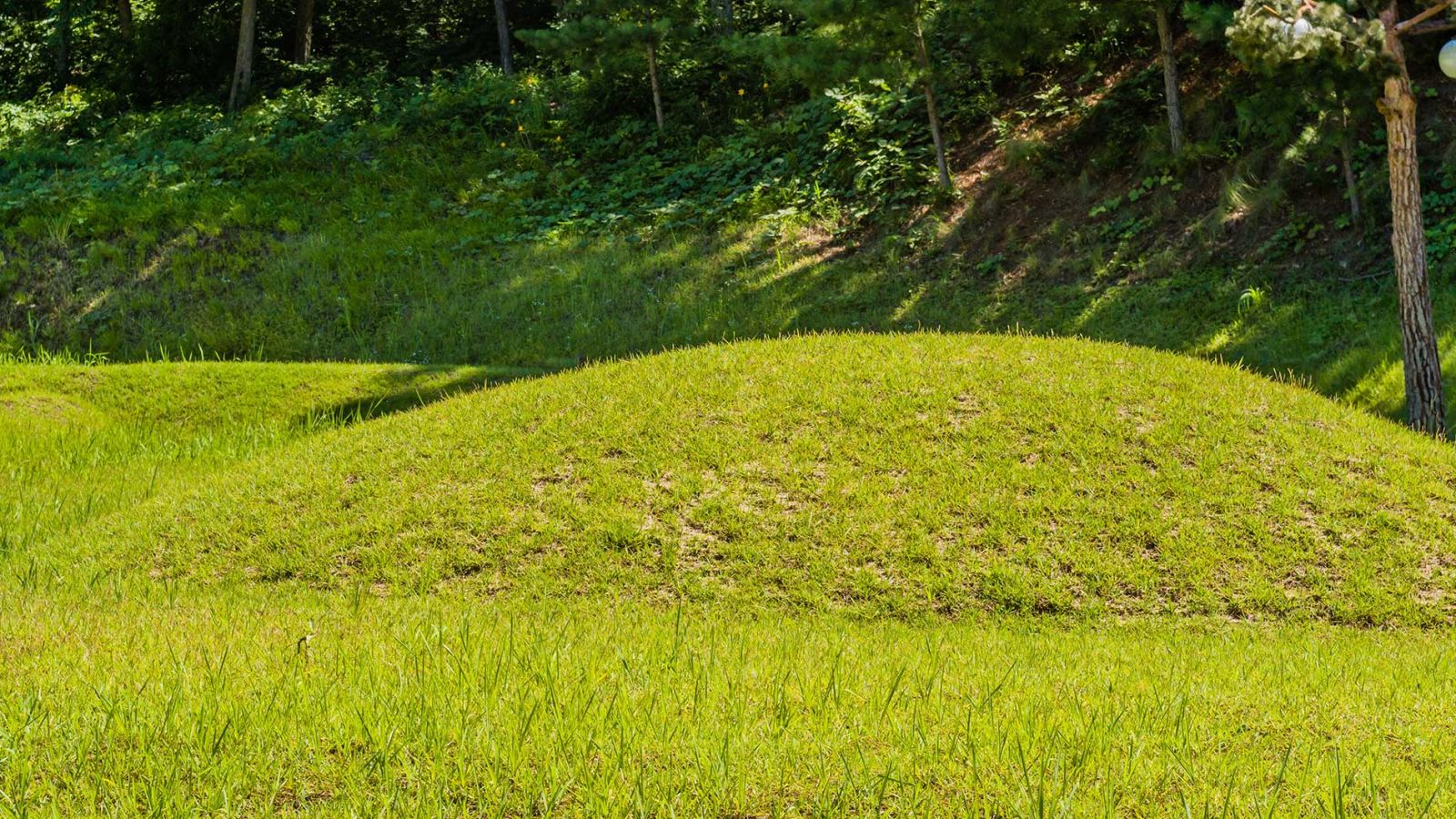Extracts from Ṣaḥīh al-Adab al-Mufrad of Imām Al-Bukhārī
Imām Muḥammad ibn Ismāʿīl al-Bukhārī


Associating partners with Allāh, killing a soul, fleeing from the advancing army, to accuse a chaste woman, eating ribā, eating the property of an orphan, to apostasize in the mosque, the one who ridicules/derides others, and making the parents cry due to disobedience to them.
Chapter 1: The Saying of Allāh the Exalted, “and we Have Enjoined Upon Man to Be Good to His Parents”
1/1 From Abū Umru ash-Shaibaanee who said, “the owner of this house narrated to us,” and he indicated with his hand to the house of ʿAbdullāh, that, “I asked the Prophet ﷺ, ‘which action is the most beloved to Allāh?’ He said, ‘Prayer at its correct time’. I said, ‘then which action? ‘ He said, ‘birr (good treatment, kindness) to the parents.’ I said, ‘then which?’ He said ‘Jihād in the way of Allāh'”
ʿAbdullāh said, “he told me these, and if I had asked further, he would have told me.”
Ṣaḥīḥ – Irwá (1197)
2/2 From ʿAbdullāh ibn ʿUmar who said, “the Lord is pleased when the parents are pleased, and is Angry when the parents are angry.”
Ḥasan as mawqūf, ṣaḥīḥ as marfūʿ al-Ṣaḥihah 515
Chapter 2: Birr to the Mother
3/3 From Bahz ibn Ḥakīm from his father from his grandfather who said, “I said, ‘O Messenger of Allāh who is most deserving of my birr?’ He said, ‘your mother.’ I said, ‘who is most deserving of my birr?’ He said, ‘your mother.’ I said, ‘who is most deserving of my birr?’ He said, ‘your mother.’ I said, ‘who is most deserving of my birr?’ He said, ‘your father, then your closest relation, then your closest relation.'”
Ḥasan – Irwá (2232,829)
4/4 From ibn ʿAbbās, “that a man came to him and said, ‘I proposed to a woman and I yearned that she marry me. Then someone else proposed to her and she desired to marry him. Then I seduced her, then killed her, so is there repentance for me?’ He said, ‘is your mother alive?’ He replied, ‘no.’ So ibn ʿAbbās said, ‘repent to Allāh Azza wa Jall and seek to get close to Him as much as you can.'”
(Ataa ibn Yāser) said, “so I went to ibn ʿAbbās and asked him, ‘why did you ask if his mother was alive?’ He said, ‘indeed I do not know an action which can get one closer to Allāh then birr to the mother'”
Ṣaḥīḥ – al-Ṣaḥihah (2799)
Chapter 3: Birr to the Father
5/5 From Abū Hurayra who said, “it was said, ‘O Messenger of Allāh ﷺ, who is most deserving of my birr?’ He replied, ‘your mother’. He said, ‘then who?’ He replied, ‘your mother.’ He said, ‘then who?’ He said, ‘your mother.’ He said, ‘then who?’ He replied, ‘your father'”
Ṣaḥīḥ, al-Irwá (837), al-Ḍaʿīfah (under no 4992)
Chapter 4: Gentle Words to the Parents
6/8 from Taysala ibn Mayyaas who said, “I was with the Najadāt (a group of the Hururiyyah) and I committed a sin which I regarded to be Major, so I mentioned this to ibn ʿUmar. He said, ‘what sin is it?’ I said, ‘this and this.’ He said, ‘this is not from the Major sins, the major sins are nine:
Associating partners with Allāh, killing a soul, fleeing from the advancing army, accusing a chaste woman, eating ribā, eating the property of an orphan, apostatizing in the mosque, the one who ridicules/derides others, and making the parents cry due to disobedience to them.’
ibn ʿUmar said to me, ‘do you fear the fire and wish to enter the Paradise?’ I said, ‘of course, by Allāh!’ He said, ‘are your parents alive?’ I said, ‘I have a mother.’ He said, ‘then by Allāh! If you were to speak gently to her and feed her, you would certainly enter Paradise, as long as you stay away from the Major sins.'”
Ṣaḥīḥ, al-Ṣaḥihah (2898)
7/9 From Urwa who said about the verse, “and lower for them the wings of humility out of mercy” – ‘do not prevent them from anything that they love.’ Ṣaḥīḥ Isnād
Chapter 5: Repaying the Parents
8/10 From Abū Hurayra from the Prophet ﷺ that he said, “the son can never repay his parent. Except that he finds him a slave, then buys him and sets him free.”
Ṣaḥīḥ, Irwá (1747)
9/11 From Abū Buraydah that he was with ibn ʿUmar and a Yemeni man was making ṭawāf of the House carrying his mother on his back saying, “I am her humble camel where her camel would have gotten frightened I will not” Then he said, ‘O ibn ʿUmar! Do you think that I have repaid her?’ He said, ‘no, not even a for a single moan that escaped her during childbirth.’
Then ibn ʿUmar made ṭawāf of the house, then came to the Station (of Abraham) and prayed two rakʿahs. Then he said, ‘O ibn Abū Mūsá! Indeed, every two rakʿahs expiate what came before them.’
Ṣaḥīḥ Isnād
10/13 From ʿAbdullāh ibn Umru who said, ” a man came to the Prophet ﷺ to give him the bay’ah for ḥijrah, and he left his parents crying. So the Prophet said, ‘return to your parents and make them laugh as you have made them cry'”
Ṣaḥīḥ, al-Taʿlīq al-Raghīb (3/213)
Chapter 6: Disobedience to Parents
12/15 From Abū Bakra who said, “the Messenger of Allāh ﷺ said, ‘shall I not inform you of the greatest of the major sins?’ [three times] They said, ‘of course O Messenger of Allāh!’ He said, ‘associating partners with Allāh, disobedience to the parents – then he sat, reclining – and the false statement.’ He kept repeating them until I said, ‘if only he would stop'”
Ṣaḥīḥ, Ghāyah al- Marām (277)
Chapter 7: Allāh Surses the one who Curses his Parents
13/17 From Abū al-Tufayl who said, “Ali was asked, ‘did the Prophet ﷺ favour you with something that he did not favour for the rest of the people?’ He said, ‘the Prophet ﷺ did not favour anything for us that he did not favour for the people, except for what is in the hilt of my sword.’ Then he removed a piece of paper and written on it was, ‘Allāh curses the one who slaughters for the sake of other than Allāh. Allāh curses the one who steals the boundary posts of the land (in order to make his plot of land bigger). Allāh curses the one who curses his parents. Allāh curses the one who aids an innovator.'”
Ṣaḥīḥ, al-Mishkāt (4070)
Chapter 8: Birr Is for the Parents in Those Matters That do not Involve Disobedience (To Allāh)
14/18 From Abū al-Dardā who said, “the Messenger ﷺ enjoined me with 9 things: do not associate anything with Allāh, even if you are cut into pieces or burned. And never leave the obligatory prayers deliberately, and the one that leaves them deliberately becomes absolved of protection. And do not drink alcohol for it is the door to all evil. And obey your parents, and if they command you to leave your worldly possessions then do so for them. And do not dispute/contend with the leader of the Muslims, even if you think you are right, and do not flee from the advancing army, even if you are destroyed and your companions flee. And spend of your property on your family. And never raise your stick against your family. And fill them with the fear of Allāh.”
Ṣaḥīḥ, Irwá (2026)
15/20 From ʿAbdullāh ibn Umru who said, “a man came to the Prophet ﷺ intending to go on jihād. So he said, ‘are your parents alive?’ He said, ‘yes.’ So he said, ‘your jihād is with them.'”
Ṣaḥīḥ, Irwá (1199)
Chapter 9: The one Whose Parents Attain Old Age and he Does Not Enter Paradise
16/21 From Abū Hurayra, from the Prophet ﷺ that he said, “may he be disgraced and humiliated, may he be disgraced and humiliated, may he be disgraced and humiliated.” They said, “who O Messenger of Allāh?” He said, “the one whose parents attain old age, or one of them, and he enters Hellfire (by not serving them).”
Ṣaḥīḥ, al-Taʿlīq ar-Raghīb (3/215)
Chapter 10: Not Seeking Forgiveness for one’s Father Who Is Mushrik
17/23 From ibn ʿAbbās, about the saying of Allāh, ‘and if one of them, or both of them attain old age during your life, then do not say to them “Uff”‘ until His saying, ‘as they brought me up when I was young – “this was abrogated (or the meaning was restricted) by the āyah in Sūrah al-Barāʾ, ‘it is not for the Prophet and the believers that they seek forgiveness for the mushriks, even if they be of the close relations after it has been made clear to them that they are the Companions of Hell.'”
Ḥasan Isnād.
Chapter 11: Birr to the Parent Who is a Mushrik
18/24 From Saʿd ibn Abī Waqqās who said, “four verses were revealed with regards to me in the Book of Allāh: My mother swore that she would not eat and drink until I disassociated myself from Muḥammad ﷺ, So Allāh revealed. ‘and if they endeavour to make you commit shirk with me, of which you have no knowledge, then do not obey them and accompany them in this world in a good way.’ I took a sword which I liked, so I said, ‘O Messenger of Allāh give me this’ so the verse was revealed, ‘they ask you about the spoils of War’ I became sick so the Messenger of Allāh ﷺ visited me. So I said, ‘O Messenger of Allāh! I intend to divide my property, shall I give half away (in charity)?’ He said, ‘no.’ So I said, ‘a third?’ and he remained silent. And afterwards, a third was made permissible. I drank alcohol with a group of the Ansār, and then a man amongst them struck me on my nose at a place called Lahya Jamal. So I went to the Prophet ﷺ and Allāh revealed the verse with regards to the prohibition of alcohol.”
Ṣaḥīḥ, al-Mishkāt (3072)
Most Popular: Last 30 Days

















